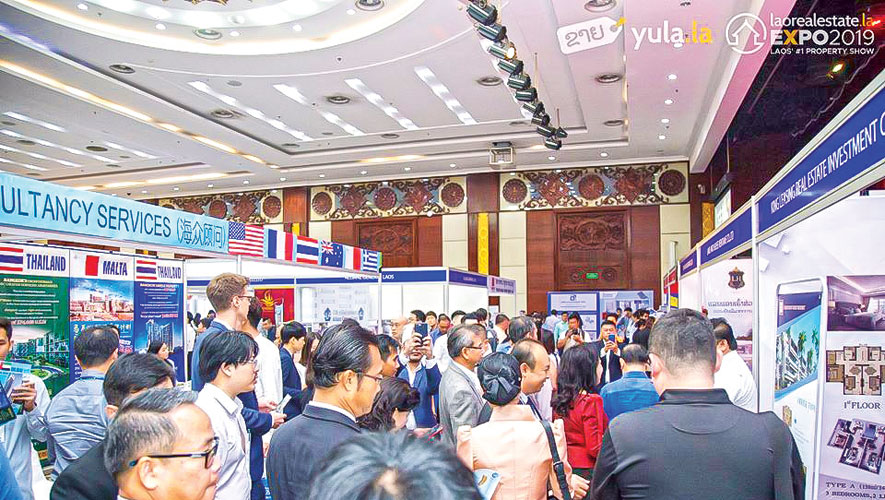The 4th industrial revolution has arrived. The world around us has changed. Many grew up during the industrial age, which saw wealth and convenience grew exponentially. The world has now entered the digital age where so much has been written and talked about on the impact of artificial intelligence (AI) and robotics, the internet of things (IOT), biotechnology and so on, that McKinsey Global Institute is predicting that one area which is most affected is work and organisations.
For the latest Cambodian Business news, visit Khmer Times Business
Digital effects on infrastructures and delivery systems have brought about massive changes within both public and private sectors. Business transformation of this nature has brought higher efficiencies and conveniences through improved processes and opportunities. Even the deployment of technology for example through the IOT there are higher integration of physical devices through applications to enable economic and social benefits.
Evidently, we now see higher extension of internet connectivity to drive a variety of standard devices from desktops to smart phones to support both corporate and social lifestyles. It is expected that as much as 60 percent of present work tasks and activities worldwide would likely to be displaced by 2030.
Disruptive technology
The majority of these would begin with the automation of work tasks involving what is commonly known as the semi-skilled and unskilled jobs. Indeed, such aprediction is in line with The World Economic Forum’s The Future of Jobs Report that said by the year 2022, no less than 54 percent of all employees will require significant re- and upskilling.
Many experts would agree that it is hard to ignore the disruptions technology has brought about to business processes and experiences. This has affected the future design of work. Lessons from business history show that while technology has always played a key role towards shaping work, it has also created new and future work opportunities that do not exist today. For example, we need to go no further than to witness how the digital revolution has transformed the way we communicate and connect to each other without borders and 24/7. From a sustainability perspective, technological changes will continue to transform and improve the nature of work and services.
The digital transformation of business offers immense opportunities to help support the culture of sustainability. The challenge of climate change isn’t going away so easily and some studies have shown digital initiatives involve the adoption of energy efficiency technology, as well as speeding up the use of renewable energy-based technology.
Progression to a more sustainable economy involving digital and technology innovations offers new job opportunities from data analysis to the production of biodegradables.

Job creation
The European Commission sees the arrival of the digital economy as the opportunity to promote greater inclusive growth at the same time fostering conditions that will enable the creation of jobs in a more sustainable manner. These includes new sustainability enterprises involving more environmental friendly products and services and that will involve training to raise digital literacy. Policies are being crafted to support a much more inclusive growth as part of their commitment to social sustainability.
Prevailing forces
In her book, The Future of Work is Already Here, Professor Lynda Gratton at the London Business School predicted five prevailing forces that would shape the future of work. It is no surprise that, among these forces, she identified the force of energy resources as one of these main forces. The ever-rising cost of energy and threat of climate change are offering fresh opportunities for new employment while, at the same time, eliminating the ones that have contributed to the rise in greenhouse gas emissions.
Technology has always been one of the main drivers behind the economic advancement of many nations. Societal changes and improvements are just one of the many possibilities of such scientific advancement. Professor Gratton identified these forces that include the rising technology capability and connectivity between 5 billion people, the cloud becoming ubiquitous, continuous productivity and social participation digitalisation of knowledge, use of energy resources and replacement of jobs. These forces have shaped the world as we know.
The world has experienced the pervasiveness of digital technology in both our work and private home. It is within such a context, that many experts do expect to witness the continuing changes to roles, jobs and people.

Broad perspectives
These impacts can be narrowed into several different perspectives that will shape the future on how organisation and individuals manage the transition.
There are hardly any jobs that are not affected by technology disruption. The past three decades saw the rise in productivity because of technology. There was a phenomenal rise in the number of transactional businesses that had been automated. It is not just in assembly lines but also services across all industries. The number of new jobs created from such phenomenal changes can be seen from the mushrooming of new jobs from IT, to even marketing and services. From the introduction of the IBM main frame to the use of tablets, in these past 40 years, employees have greatly benefited from additional convenience – and services across every sector. In many ways the risk of health and safety hazards has also been eliminated through automation of certain tasks through technology. Hence, we need to recognise that automation is affecting tasks and not jobs. Automation through new technology has also helped to drive scalability – and such organisational effectiveness wouldn’t have been possible in the days of manual and routine duties.
In under one decade, business and society have also benefited from improvement to production right down improvement in lifestyle of individuals. Technology advancement has also improved medical fields where not only exposure to hazards are lessened but also medical specialists and doctors are now in a better position to diagnose their patients with greater precision. Fast forward to today and we are into advanced technology where the internet of things allows us to connect to just about anything through physical devices.
Through our mobile phones and lap tops we communicate better, shop, play and even interface with whomever we want anywhere on a 24/7 basis.
Organisational roles
From the organisational perspective, today’s digital environment has increased the opportunity to introduce and allow greater innovation and autonomy to decision making. An example is the connected culture which demands greater teamwork and cooperation and greater emphasis on the gathering, analysis and storage of information intelligence.
The ability to analyse and adapt to faster and unpredictable environments is perhaps an emerging competency that will be the differentiator. There will be a conscious shift towards depth rather than width. The mastery of skills shows the trend is towards greater specialisation because the emphasis is on what you know.
All these mean everyone must have the ability to leverage technology solutions, as well as industry trends and experiences to drive their own experiences. This is more so in a sustainable world, where there will be unlimited opportunities to embrace such skills and development.
Networked environment
Another wave of change to jobs and roles will witness a broader but horizontal career road map, where multi-tasking, and co-ordination skills in a networked environment will be necessary. There is then the need to revisit the whole concept of career development. The digital era will likely mark the end of lifetime employment and vertical management progression will come to an end. Indeed, career routes will be less structured and more collaborative.
In a new artificial intelligence era, growth in the gig economy will accelerate, which will see more outsourcing and, thus, more employees on short-term contracts with flexible locations and hours. In terms of functional changes, there will be a constant shift from the functional hierarchical to a network-based organisation that will not only de-emphasise titles but re-emphasise skills and capabilities – and these will continue to evolve as the digital age demands more fluidity and responsiveness.
Skill acquisition
In the digital age, skill acquisition will become more participative as knowledge becomes more digitalised and more important. There will be the greater use of mobile applications that provide flexibility to working adults to pursue continuous learning.
The upskilling or training purposes has already manifested in the proliferation of fast-growing digital education companies providing on-line tuition.
A recent Babson Survey Research Group even suggests that 6.7 million post-secondary students are taking at least one on-line course compare with just 1.6 million in 2001.
However, for online learning to be available, access to the internet is a must and, given the inadequacy of digital infrastructure in remote parts of some countries, access remains a challenge.
Equally important is the adaptability of learning styles towards online, because learning in isolation may not be practical for a working adult.
There is a general agreement that e-learning technologies will continue to evolve and become much more accessible and interactive through mobile devices, empowering the younger workforce to construct their own meaning and digital identity.
With greater emphasis on the sustainability footprint, the digital economy will see growth of more technical specialisation. Regardless of the shape of technology, inputs will come heavily from sciences.
Technology has contributed to improvement in better use of research across all sciences.
For example, progress in life sciences will experiences more leaps and bounds, as demand for better healthcare and treatment increases.
The advancement made by the sciences has made artificial intelligence more impactful, as such we will see greater integration into the development of driverless cars and even use of robotics across all economic sectors.
Managing a digital economy means the performance management will have to be more agile and responsive.
Organisations may have to consider discarding the old concept of the “bell curve” approach in favour of new models that give greater more weight to short-term and intangible contributions.
Drastic change
Reward practices will be focused on individual competencies, and less dependent on a structured pay system.
The digital economy is expected to bring about drastic change in the way jobs are being designed, roles being managed and skills being developed.
The future of work will demand individuals to be empowered and be able to be agile and responsive to change. As we move from a more functional and controlled environment to one that is more flexible and responsive, there is no denying that challenges will bound to be plentiful.
Tay Kay Luan is vice-chancellor of the International University Malaysia Wales and is also the author Perspectives on Social and Business Sustainability. He graduated from the London School of Economics and Political Science and Kingston University London




